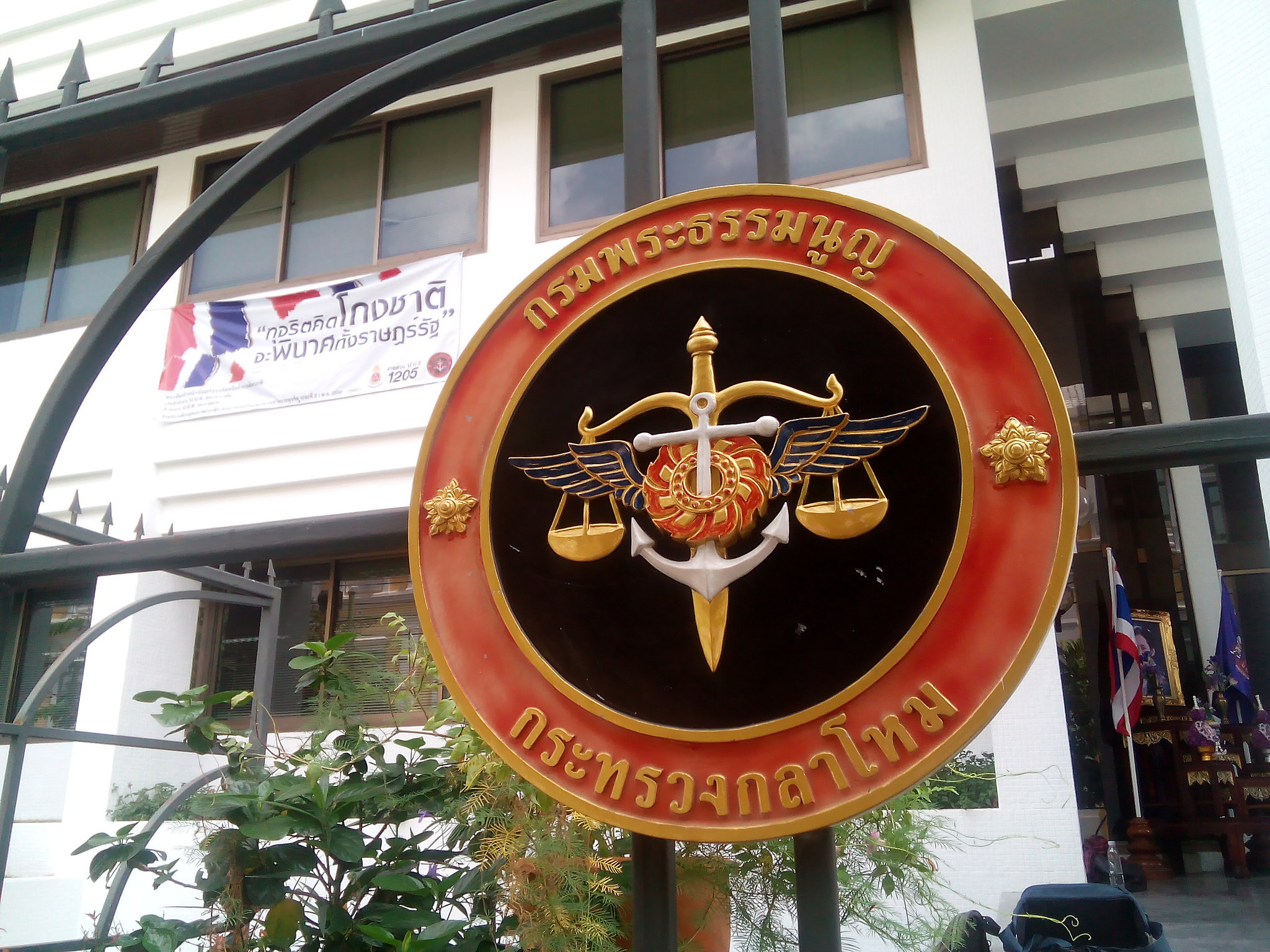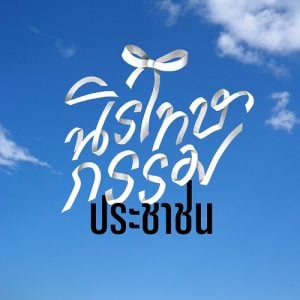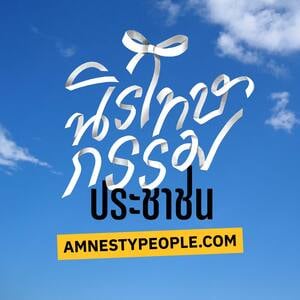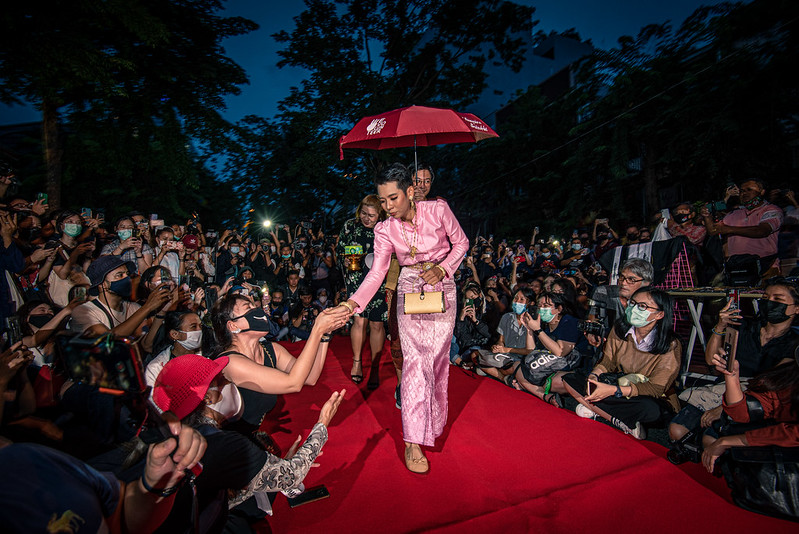Before the 2014 coup d’état, only army personnel can be prosecuted at the military court. The announcement of the National Council for Peace and Order (NCPO) no. 37/2014, 38/2014 and 50/2014 have set a new practice that civilians can also be tried in the military court for the following charges;
>> Charge against the King and Royal family, under section 107-112 of the Criminal Code
>> Charge against national security, under section 113-118 of the Penal Code
>> Charge of defying any NCPO’s orders and announcements
>> Charge of usage or possession of firearms, bullets, or explosive devices that cannot be issued the license and particularly used in wartime, under
The Firearms, Ammunition, Explosives, Firework and Imitation Weapons Act 1947
>> Charge relating to a commission of crime under the jurisdiction of the military court
In principles, the military court’s procedure refers to the principles in Criminal Procedure Code, regardless the different detailed procedures and conditions between the military court and the civil court, for instance;
++ There is neither an Appeal Court nor Supreme Court on the military court procedure under the martial law. There is only the first instance procedure.
++ Judges are all military officers. The 3 judges form a court panel, 2 of the judges are high-ranking army officials and they are not required to hold a degree in law.
++ The prosecutor is not required to possess a barrister-at-law license.
++ If the defendant pledges guilty or does not wish to attend the court hearing, the hearing and examination of witness in the military court can be held with the defendant’s absence.
++ During the witness examination, the military court usually does not schedule and announce the date for the next witness examination. So there is a large lapse of time between each witness examination which allows the witnesses to prepare their testimonies.
++ The Department of Probation under the Ministry of Justice is assigned to check the defendant’s background and profile. The military court however is under the Ministry of Interior, therefore the military court does not have its own procedure to check the defendant’s profile and background.
++ It was recorded that in some cases the military court did not allow the defense lawyer to make a copy of the indictment and other relevant court documents of the case.
++ There is a practice that, on the day that the prosecutor submits the complaint, the defendant does not need to be present at the military court until the day that the defendant will give his or her testimony. It has also been observed that, the military court does not have any unified waiting period for all case. In some cases, the defendants waited for more than a month before they could give their first testimony. As a result, the defendant is compelled to wait for a lengthy period of time without being informed about the upcoming hearing’s date. Some defendants are waiting while being detained.
++ There is a practice that, on the day the court order a provisional detention, the defendant is considered under the resposibility of Department of Correction and will be immediately transfered to prison without considering that the defendant request for bail or not. For defendants who got bail on the same day, they still have to be recorded their profiles and pass the physical examination in the prison and will be released at 20.00.
++ The military court used to have fewer cases to process, and its judges and officials have never handled a huge number of cases with complicated evidences, witnesses and legal analysis.

Total statistic of political related cases that civilians were on trial.
After the coup until the end of September 2016, a total figure of at least 145 civilian individuals were prosecuted in the military court which can be grouped as the followings;
(1) Cases on defying the NCPO’s announcement no. 7/2014 which prohibits political related gatherings: 62 individuals
(2) Cases on defying the NCPO’s announcement no. 41/2014 which penalize whoever did report themselves as the summon order: 10 individuals
(3) Lèse majesté case under section 112 of the Criminal Code: 39 individuals
(4) Cases of provoking and inciting under Section 116 of the Criminal Code: 20 individuals
(5) Cases involving firearms which can be related to political conflict: 59 individuals
Some individuals were prosecuted over several charges, while some others were on trial for more than one case. [See the information of individuals politically charged after the coup here https://www.ilaw.or.th/articles/1244]
In addition, there are many civilians were charged with non-political grounds but they were on trial in the military court. Human Rights Watch, once, provided an overall number of at least 700 civilians were on trial in the military court.
Observations on the military court during 2014-2015
++ For cases over charges of disobeying the order and announcement of the NCPO, the military court has a tendency to sentence the defendants the same punishment for all cases and followed by the suspension of the punishment. [For more detail, please visit https://www.ilaw.or.th/articles/1244]
++ The military court tends to give a harsh imprison penalty over section 112 case. In several cases, the military court sentences the defendant to 10 years in prison over a commission against section 112, while the civil court sentences the defendant to averagely 5 years in prison over the same charge. Moreover, the military court tends to process the case in a closed door. [For more detail, please visit https://www.ilaw.or.th/articles/8847]
++ There are at least 4 cases which the actions against section 112 successfully occurred before the coup, however they were handled by the military court because such acts remained on the internet. As a result, these cases were considered as continuous commissions of crime and were dealt by the military court. [For more detail, please visit http://www.ilaw.or.th/node/3254]
++ In most cases, the military court does not allow the attendants to take note during the hearings. [For more detail, please visit http://prachatai.com/journal/2014/10/56236]
++ At least 4 civilian defendants submitted their petitions arguing the jurisdiction of the military court over their cases, nevertheless the military court denied to hand the petitions to the Constitutional Court for consideration. [For more detail, please visit http://freedom.ilaw.or.th/node/156]
++ On 26 June 2015, Bangkok Military Court opened until midnight to issue a provisional detention order for 14 suspects of New Democracy Movement case which is the case highly under media and public attendtion.
RELATED POSTS
No related posts















